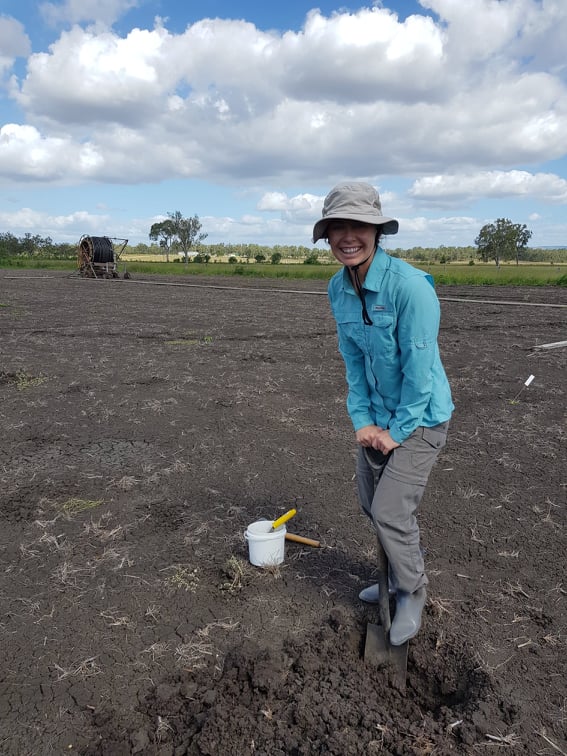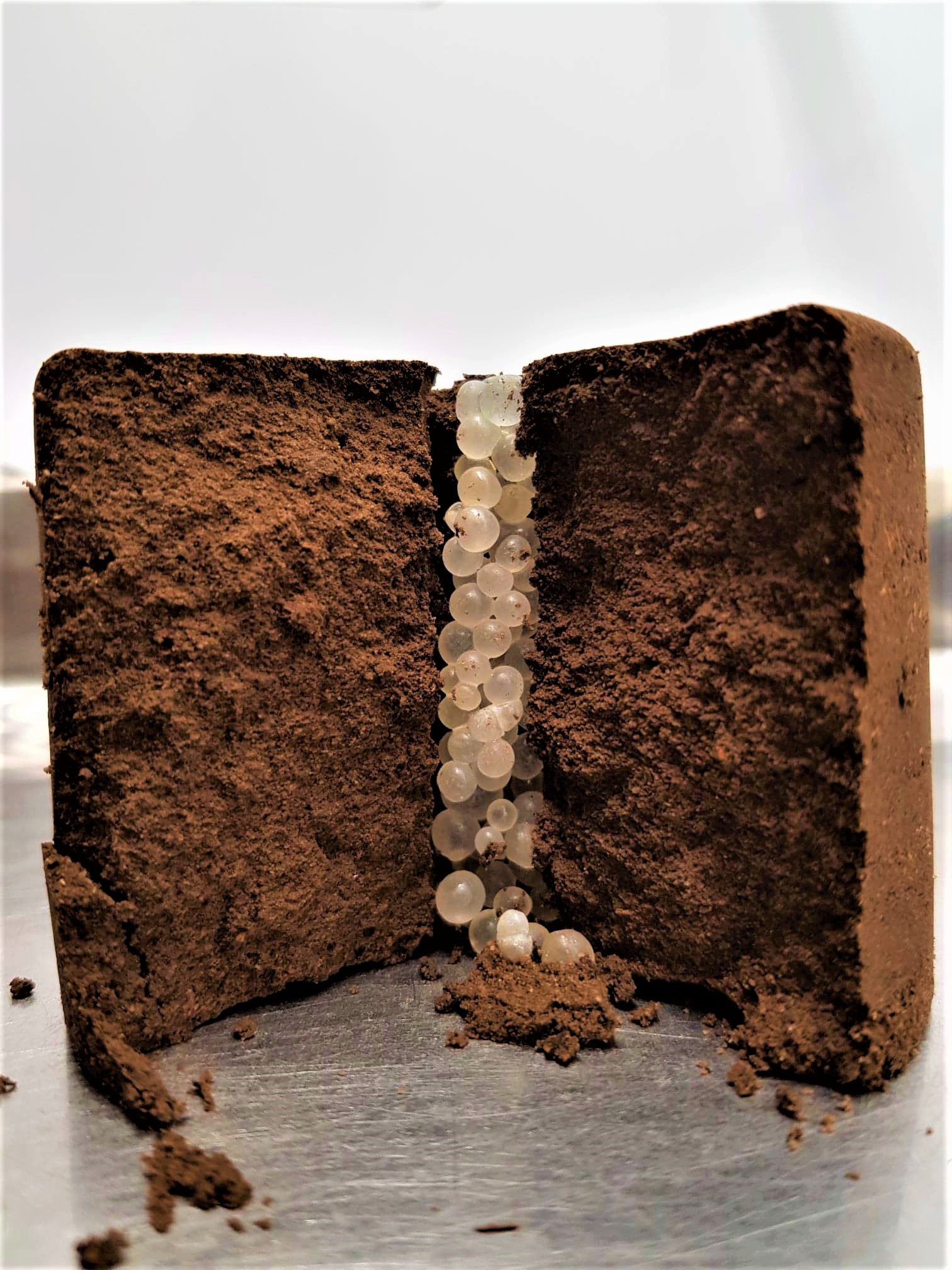
Dr Chelsea Janke has received the 2021 CG Stephens PhD Award for her thesis on soil science, which used an innovative approach to identify strategies that could help farmers keep their crops healthy while also reducing impacts on the environment.
The CG Stephens PhD Award is made each year to the PhD thesis in soil science judged to be the most original and significant to the field.
Dr Janke’s research involved an investigation into the behaviour of emerging nitrogen fertiliser technologies in different soils and scenarios to provide advice to farmers on where and how these products should be used.
“These new fertilisers may be an important tool for improving nitrogen uptake in crops whilst reducing environmental losses,” Dr Janke said.
“This research supports efforts to address the conflicting challenges of improving agricultural productivity whilst mitigating harmful impacts to the environment and global climate.”
Dr Janke’s research was one of many theses submitted from across Australia, and she has been recognised for her highly innovative approach to a problem faced by farmers worldwide, and her use of state-of-the-art methods to investigate the behaviour of enhanced efficiency fertilisers in soils.
“It was an unexpected but pleasant surprise to learn I had received this special award, and I feel very honoured to be recognised by the Australian soil science community,” Dr Janke said.

“This is an increasingly important issue and there’s still so much work to be done, but it is always very rewarding to be recognised for something that you’re passionate about.
“It’s also an opportunity to publicly acknowledge the excellent advisors I have had in Mike Bell, Phil Moody, and Ryosuke Fujinuma, who have all played such an important role in supporting me throughout my PhD.”
With global agricultural production needing to at least double by 2050 to meet food, fibre and energy demands for a growing world population, research such as this will become ever more important going forward.
“Soil science has traditionally provided a lot of support for solving issues such as this,” Dr Janke said.
“However, I think this field of research is increasingly being looked at to provide solutions to issues associated with the environment and climate change.
“There are some huge challenges and opportunities ahead in soil science, so it’s an exciting time to be involved.”



